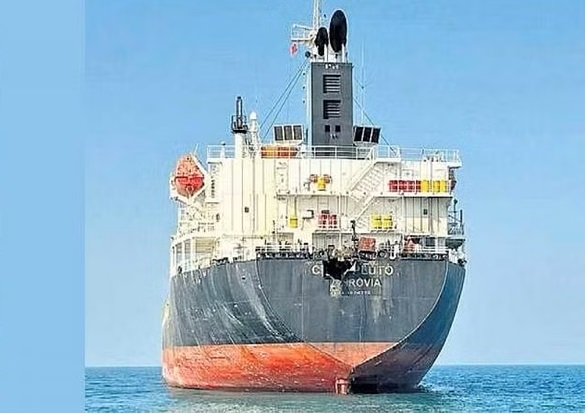Commodore Anil Jai Singh (Retd) is Vice President Indian Maritime Foundation, an organisation of former naval and merchant marine officers with a goal to raise awareness about oceans and inspire maritime consciousness among people. Mayank Singh speaks with the Commodore about the significance of the recent incidents of hijacking of MV Ruen, the reported drone attacks on MV Chem Pluto and MV Sai Baba; and how geopolitics will affect India.
There is a rise in maritime incidents involving the merchant vessels which includes a hijack and two incidents of attacks. What do these signify?
By introducing the maritime dimension into the conflict by attacking merchant shipping in the Red Sea, the Israel-Hamas conflict has grabbed global attention. The longer this conflict, the more will be the involvement of groups such as the Houthis who are sympathetic to the Hamas’ cause. Currently the conflict has been largely localised between Israel and Gaza, and there is no third country being directly involved in the conflict. With 90% of global trade travelling over the seas, any threat to its safe passage will start affecting countries across the globe. With the US and other navies deploying warships in the Red Sea to escort and protect merchant ships, there is a possibility of retaliation and consequently, the risk of escalation of the conflict.
How is it going to affect the maritime traffic in the Gulf of Aden, Red Sea, Arabian Sea and Indian Ocean?
At the moment most maritime traffic from Europe to Asia transits through the Suez Canal and the Red Sea. By attacking ships in the Red Sea, shipping traffic is now getting diverted around the Cape of Good Hope. This increases; both travel time and fuel expense. On the contrary, if ships continue transiting through the Red Sea, then they will have to pay very high insurance costs. In either case, there will be economic fallout on the movement of trade with an exponential effect on the global economy. For example, the grounding of the MV Ever Given in the Suez Canal a couple of years ago resulted in the blockage of the canal for five days or so led to an economic loss of over $400 million per hour. Imagine the effects now with the travel time increasing by more than a week.
(With $200 billion of India’s trade flows with Europe, North America and South America at risk due to the blockage of the Suez Canal, the Department of Commerce worked out an action plan to cope with the crisis, including possibly re-routing shipments through the Cape of Good Hope.)
What are India’s primary areas of interest as far as the sea lanes of communication are concerned?
Around 90% of India’s trade and 80% of its energy (oil & gas) travels over the sea. Therefore, keeping our sea lines of communication safe and open is a critical requirement for India. Our primary area of interest is the Indian Ocean and the adjoining seas are its secondary areas of interest. But the secondary areas of interest are also of great importance for the safe movement of its trade since the access to the Indian Ocean is bound by critical choke-points In this case, it is the Strait of Bab-el-Mandeb (between Yemen on the Arabian Peninsula; it connects the Red Sea to the Gulf of Aden and by extension the Indian Ocean). We have to keep it safe and open.
Is there any link of the prevailing geopolitics with the way incidents have happened?
Definitely. The India-Middle East-Europe Corridor (IMEC) comes immediately to mind. This may not be in the interest of some nations who will not be keen to see it succeed. From a geopolitical perspective, a stable West Asia is very important for India. We have a large diaspora in the region, a lot of our energy requirements are met from there and it offers a link to the Atlantic. India has taken the initiative in promoting the IMEC and the I2U2 (India-Israel-USA-UAE), besides other bilateral arrangements to promote our interests in the region. Any political uncertainty is bound to impact us in one way or another.
(The India-Middle East-Europe Economic Corridor IMEC was signed at the G20 Summit in New Delhi, which holds significant geopolitical and economic implications for India. The project forms part of the Partnership for Global Infrastructure and Investment (PGII).
What should be India’s approach in keeping its interests secure?
India should not get directly involved in the Israel-Hamas conflict and ensure the safety of its own shipping. However, if our shipping is deliberately attacked, then we must send a strong response/ warning that while we may not be directly involved in the conflict, we will not accept any compromise to our national interest.
The Indian Navy has been quick in its responses with the forward deployments as per its maritime domain awareness plans. Is it helping?
India takes pride in being the first responder in the Indo-Pacific. Because of its multi-mission deployment, Indian ships are deployed in various parts of the Indo-Pacific at any given time and are therefore able to respond quickly to any developing situation. Stealth destroyer INS Kochi was promptly redeployed to shadow the hijacked vessel MV Ruen, We also successfully evacuated an injured member of the merchant vessel’s crew.
Source:
https://www.newindianexpress.com/nation/2023/dec/26/must-send-strong-response-to-ship-attack-2644990.html








